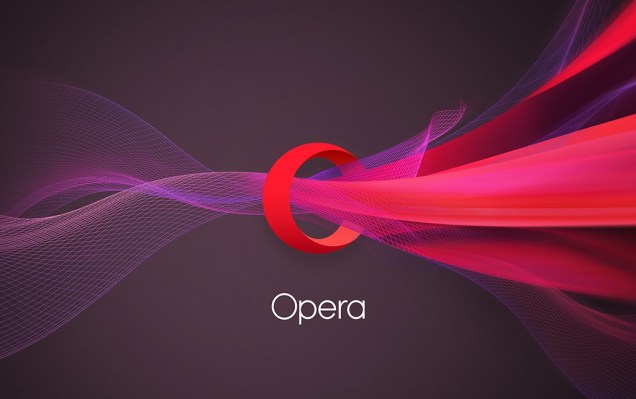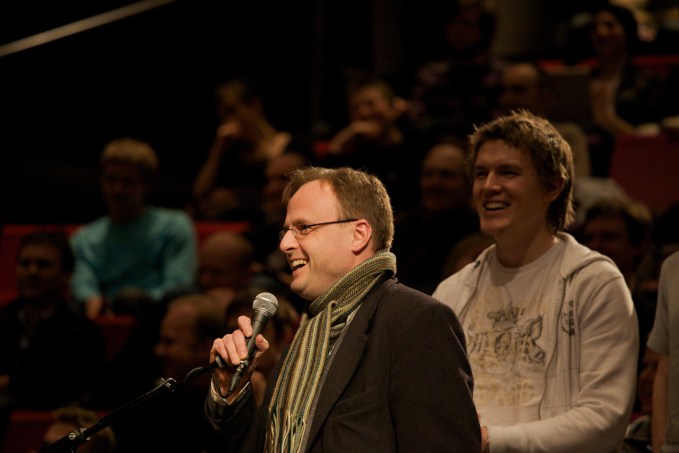After months of rumor, Opera finally confirmed two weeks ago that its board had accepted a takeover offer from a consortium of Chinese firms for the price of $1.2 billion.
I had a chance to sit down this week at MWC with Lars Boilesen, the CEO of Opera, and Håkon Wium Lie, the company’s CTO and inventor of cascading style sheets (CSS). In this wide-ranging and candid interview, we touched upon everything from the recent acquisition to the company’s future product plans.
The elephant in the room, though, was obviously the proposed sale. Boilesen and Wium Lie stressed multiple times during the interview that the sale hadn’t gone through yet, and I couldn’t help but get the impression that they wouldn’t be horribly disappointed if something would have happened to prevent it. Indeed, they both noted that the sale was the result of the board’s and shareholders’ wishes and not necessarily their own.
“I have been working for Opera since ’99, Håkon ’98,” Boilesen said. “He’s No. 8; I’m No. 16. We’ve been with Opera for many years. We got listed on the Stockholm stock exchange in 2004. So basically, the shareholders — they decided to initiate this process. It was kind of their decision. It wasn’t our decision.”
While the board clearly had a few options, it decided to go with a consortium that includes mobile game company Kunlun, security and search firm Qihoo 360, and Yonglian Investment.
“If you are listed on the stock exchange, you have to be prepared for this kind of stuff. Anybody can buy you,” Wium Lie added. “We benefitted from that system and now… you know…”
“We are not big shareholders,” Boilesen said. “We know what it’s like to be on the stock exchange, so basically we just started the process. We are the ones who have to work with the interested parties. […] We worked with them — that was kind of interesting. We kind of did that. There were all kinds of things there from private equity firms that want to get the cost down — but they would’ve closed down the firm in four years and we’re not super interested in that. We still want more people to use our software. That’s what we are passionate about.”
Boilesen wouldn’t say how many suitors Opera had but did say there were “between two and 10.” Some of these knew more about the business than others, including the consortium that finally ended up getting the nod. Boilesen noted, though, that it was the shareholders who decided on the acquirer.
For most Opera users, the sale came as a bit of a shock, not in the least because Qihoo 360 doesn’t necessarily have the best reputation. Boilesen and Wium Lie noted, though, that Qihoo is only the minority shareholder in this deal. Mobile games and apps firm Kunlun, which publishes Angry Birds in China, is the majority partner.
Success in the C market has always eluded Opera, and the partners in the consortium want to reach the countries Opera is already strong in, including India and Brazil.
“They have products we don’t have — and they have 500 million users in China, where we are not strong,” Boilesen said. “There are some synergies here. But the deal hasn’t happened yet — and if it doesn’t happen, we’re fine with that. If it happens — on the positive side — it’ll be interesting to be part of a bigger ecosystem […]. We’ll become part of a very big ecosystem if this happens — in markets where Opera is a leading Internet brand.”
Wium Lie also noted that the Chinese Internet market is still a bit of a Wild West, so the business practices there may seem strange to most people outside of the country but are simply common practice there. “If you look at almost any Chinese company, you’ll find business practices that we are not familiar with,” Wium Lie said.
“But we have to look forward. We believe the consortium is honest. This is not just a financial experiment for them. These are people who want to grow inside China, but more importantly outside — and they found a very good match, I think. I think we can reach 1 billion people here and that’s very motivating for our engineers, as well.”
A new browser for the U.S.
To grow, Opera believes it needs a strong partner in these markets where it still has a lot to grow — but that doesn’t mean the company is giving up on the U.S. market either. Indeed, both Boilesen and Wium Lie noted that they would love to get more market share in the U.S. and they revealed that Opera is working on a new browser specifically for this purpose.
Boilesen noted that it was always Opera’s dream to succeed in the North American market and given that it’s profitable and able to reinvest its money into trying new things, it wants to give this another shot. The company previously showed its willingness to experiment with products like its Coast browser for iOS, for example.
While the team wouldn’t say much about what this new browser would look like, it seems the focus here will be on making browsing faster and more convenient on the desktop by making better use of the bigger screens and faster machines we all now use. Improved tab management also looks like one of the areas the team is looking at.
The discussion also touched upon Opera Max, the company’s data compression and bandwidth savings tool for Android. There, the team didn’t want to discuss the future direction for the product in detail either, but it looks like the plan here is to add some security-centric features. Opera also recently acquired VPN service Surfeasy, so it would make sense to integrate this into the product soon, too.
No matter how Boilesen and Wium Lie feel about the prospect of the acquisition closing soon (and their acquirers), it’s clear that they have lots of plans for the company’s future. Hopefully, the new owners will allow them to see them through to fruition.
Image credit: photo of Håkon Wium Lie under Creative Commons license via Carl Henrik Lunde.


